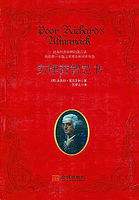"A curiosity!" exclaimed Carlton; "I should say so! The last time I was here I tried to wear a pair of knickerbockers around the city, and the people stared so that I had to go back to the hotel and change them. I shouldn't have minded it so much in any other country, but I thought men who wore Jaeger underclothing and women's petticoats for a national costume might have excused so slight an eccentricity as knickerbockers. THEY had no right to throw the first stone."
The rock upon which the temples of the Acropolis are built is more of a hill than a rock. It is much steeper upon one side than the other, with a sheer fall a hundred yards broad; on the opposite side there are the rooms of the Hospital of Aesculapius and the theatres of Dionysus and Herodes Atticus.
The top of the rock holds the Parthenon and the other smaller temples, or what yet remains of them, and its surface is littered with broken marble and stones and pieces of rock.
The top is so closely built over that the few tourists who visit it can imagine themselves its sole occupants for a half-hour at a time. When Carlton and his friends arrived, the place appeared quite deserted. They left the carriage at the base of the rock, and climbed up to the entrance on foot.
"Now, before I go on to the Parthenon," said Miss Morris, "I want to walk around the sides, and see what is there. I shall begin with that theatre to the left, and I warn you that I mean to take my time about it. So you people who have been here before can run along by yourselves, but I mean to enjoy it leisurely. I am safe by myself here, am I not?" she asked.
"As safe as though you were in the Metropolitan Museum," said Carlton, as he and Mrs. Downs followed Miss Morris along the side of the hill towards the ruined theatre of Herodes, and stood at its top, looking down into the basin below. From their feet ran a great semicircle of marble seats, descending tier below tier to a marble pavement, and facing a great ruined wall of pillars and arches which in the past had formed the background for the actors. From the height on which they stood above the city they could see the green country stretching out for miles on every side and swimming in the warm sunlight, the dark groves of myrtle on the hills, the silver ribbon of the inland water, and the dark blue AEgean Sea. The bleating of sheep and the tinkling of the bells came up to them from the pastures below, and they imagined they could hear the shepherds piping to their flocks from one little hill-top to another.
"The country is not much changed," said Carlton, "And when you stand where we are now, you can imagine that you see the procession winding its way over the road to the Eleusinian Mysteries, with the gilded chariots, and the children carrying garlands, and the priestesses leading the bulls for the sacrifice."
What can we imagine is going on here?" said Miss Morris, pointing with her parasol to the theatre below.
"Oh, this is much later," said Carlton. "This was built by the Romans. They used to act and to hold their public meetings here. This corresponds to the top row of our gallery, and you can imagine that you are looking down on the bent backs of hundreds of bald-headed men in white robes, listening to the speakers strutting about below there."
"I wonder how much they could hear from this height?" said Mrs. Downs.
"Well, they had that big wall for a sounding-board, and the air is so soft here that their voices should have carried easily, and I believe they wore masks with mouth-pieces, that conveyed the sound like a fireman's trumpet. If you like, I will run down there and call up to you, and you can hear how it sounded. I will speak in my natural voice first, and if that doesn't reach you, wave your parasol, and I will try it a little louder."
"Oh, do!" said Miss Morris. "It will be very good of you. I should like to hear a real speech in the theatre of Herodes," she said, as she seated herself on the edge of the marble crater.
"I'll have to speak in English," said Carlton, as he disappeared; "my Greek isn't good enough to carry that far."
Mrs. Downs seated herself beside her niece, and Carlton began scrambling down the side of the amphitheatre. The marble benches were broken in parts, and where they were perfect were covered with a fine layer of moss as smooth and soft as green velvet, so that Carlton, when he was not laboriously feeling for his next foothold with the toe of his boot, was engaged in picking spring flowers from the beds of moss and sticking them, for safe-keeping, in his button-hole. He was several minutes in making the descent, and so busily occupied in doing it that he did not look up until he had reached the level of the ground, and jumped lightly from the first row of seats to the stage, covered with moss, which lay like a heavy rug over the marble pavement. When he did look up he saw a tableau that made his heart, which was beating quickly from the exertion of the descent, stand still with consternation. The Hohenwalds had, in his short absence, descended from the entrance of the Acropolis, and had stopped on their way to the road below to look into the cool green and white basin of the theatre. At the moment Carlton looked up the Duke was standing in front of Mrs. Downs and Miss Morris, and all of the men had their hats off. Then, in pantomime, and silhouetted against the blue sky behind them, Carlton saw the Princesses advance beside their brother, and Mrs. Downs and her niece courtesied three times, and then the whole party faced about in a line and looked down at him. The meaning of the tableau was only too plain.
"Good heavens!" gasped Carlton. "Everybody's getting introduced to everybody else, and I've missed the whole thing!
If they think I'm going to stay down here and amuse them, and miss all the fun myself, they are greatly mistaken." He made a mad rush for the front first row of seats; but there was a cry of remonstrance from above, and, looking up, he saw all of the men waving him back.















